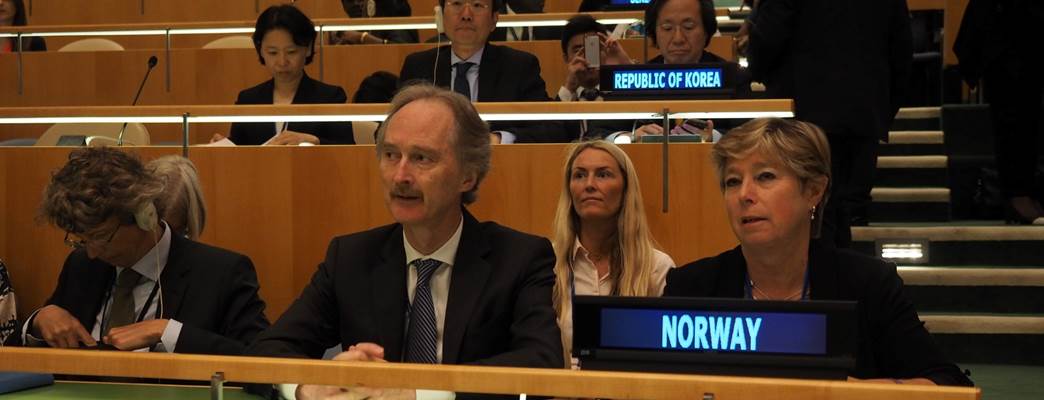President, Excellences, ladies and gentlemen,
Norway fully agrees with the need to scale up efforts to fast-track the end of AIDS.
The UNAIDS 2016-2021 strategy sets out clearly that there is no alternative to fast-tracking the AIDS response. Let us build on the historic success of the global AIDS response over the past 15 years and avoid setbacks.
Our new Political Declaration and the UNAIDS strategy must inform and guide our common efforts to end AIDS.
We know that the drivers of this epidemic are poverty, inequity, social exclusion, discrimination, gender inequality, and norms and perceptions of masculinity. The UNAIDS strategy gives us the direction we need to confront these drivers.
The evidence is clear: if we don’t succeed in addressing the needs and challenges of key populations and populations of high risk we will not end the epidemic.
Over the past 15 years, Norway has continuously increased its global health investments, thanks to broad political support in our parliament. Ending AIDS remains a priority, and Norway will continue its large AIDS investments through the Global Fund, UNAIDS, UNITAID and civil society organizations.
Norway has also rallied behind the Global Strategy for Women’s, Children’s and Adolescents’ Health. Ending AIDS is an important factor for achieving the objectives of the Global Strategy: To transform the future, and ensure that women, children and adolescents not only survive but also thrive.
The Global Financing Facility in Support of Every Woman Every Child has been set up to close the financing gap in high burden countries, and enable them to reach these goals. It is designed to trigger more domestic financing and encourage pooling of resources.
We will still need donor funding, but this will play a more catalytic role. Stronger country ownership and increased domestic financing – in line with the Addis Ababa Action Agenda – will make financing more sustainable.
The new Global Financing Facility Trust Fund will provide countries with catalytic financing of their national plans to implement the Global Strategy. Norway was one the first contributors to the Trust Fund, which is now engaged in 12 high burden countries.
At the same time, the 2030 Agenda sets a new course, where the fight against AIDS is taken out of isolation and integrated more widely.
I would also like to stress the need to ensure strong focus on quality education. Evidence shows that school attendance reduces the rates of HIV infection in young people – both girls and boys.
Access to comprehensive sexuality education and sexual and reproductive health services for young people is also important for enabling adolescents to finish their education and realize their potential.
Other critical factors that need to be integrated into these efforts are the fight against tuberculosis, and the availability and quality of health workers as part of stronger overall health systems.
Finally, Norway would like to emphasize the importance of involving young people in this work. As the saying goes: ‘Nothing about adolescents without adolescents’.
Distinguished delegates,
We are now at a critical point in the fight against AIDS. Over the next days, let us all join forces and commit ourselves to finishing what we have started.
Thank you.
